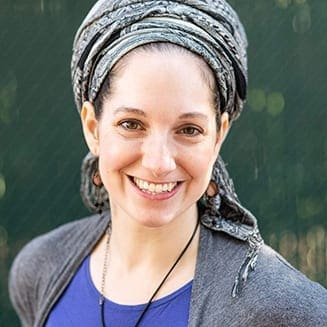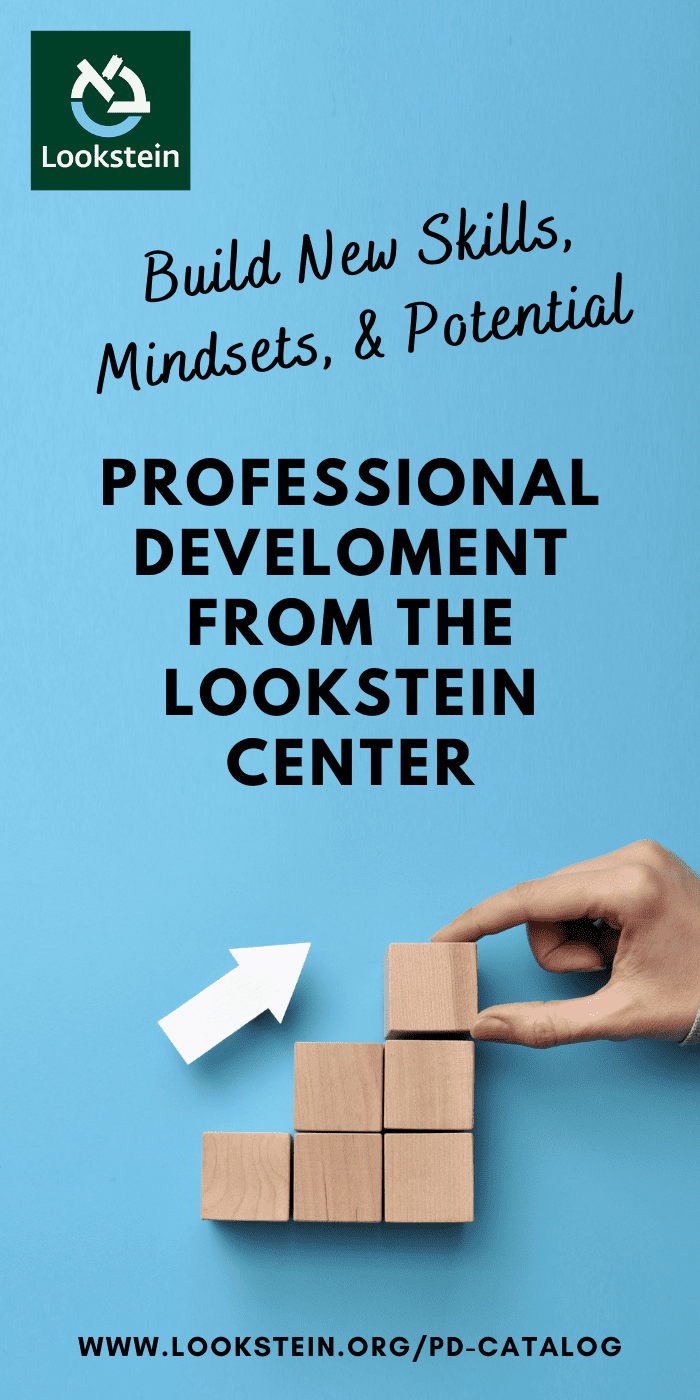Educating All of Our Children: Community Support for Homeschooling in the Jewish Community
Last year at this time, I was a preschool director, busy running teacher in-service trainings, helping set up classrooms, and finalizing class lists. This year, I am likewise preparing for a new school year with one big difference: instead of running a preschool, I will be home educating, or “homeschooling,” my 7 children.
Especially in light of COVID-19, many parents are turning to home education as the best option for their children, and the Jewish community is no exception. According to a survey conducted by Prizmah: Center for Jewish Day Schools (August 2020), 42% of participating schools project a decrease in enrollment for the 2020-2021 school year. Several families I have spoken to cite financial, educational, and health related concerns as reasons they are choosing to home educate for this school year. Others have always wanted to try homeschooling and see this year as a good time to explore the option.
Home education is not a new phenomenon in the Jewish community. According to Yehudis Eagle, mother of 11 who has been home educating her children for the past 29 years, the 1990s saw a huge rise of people coming to home education worldwide. This trend started to trickle into Jewish communities. “Hinukh is our responsibility”, says Eagle. “You can delegate that responsibility to teachers and schools, or you can do it yourself.” Eagle home educates her children in Baltimore, Maryland, where there is a relatively large number of homeschooling families. “There were more than thirty families home educating here since we moved here twenty-three years ago. I can’t even count how many there are now!” Another parent shared with me that homeschooling in the Jewish community “could be a great option. There is no morning rush, kids are more well rested. There are parents who work full-time just to pay tuition who might choose to homeschool instead if they had more community support.” A different parent shared with me that her son required medication for ADHD when he was in school. She was able to successfully wean him off of his medication since bringing him home and enjoys being able to cater the learning to suit her child’s temperament. One other homeschooling mother, who was home educated herself, says that she “comes from the perspective that homeschooling is the default and the norm, and the best educational option if parents can do it!”
While Eagle and others came to home education for ideological reasons, there are many other reasons why families in the Jewish community turn to homeschooling. In fact, Eagle says it is rare to see families in the Orthodox Jewish community choosing to home educate from a “grassroots” perspective. According to Stephanie Frumkin, an educational consultant and founder of Exceptional Educational Solutions, “families may choose to homeschool because their child is either not accepted to or ‘counseled out’ of Jewish day schools.” She adds that a child may not thrive academically or socially in a school environment. Finally, the financial burden of day school tuition, especially for multiple children, also brings some families to home education. “There should be more programming for students outside of the Jewish school system”, says Frumkin. “It is a whole community issue that we need to work together to solve.”
Home education families in the Orthodox Jewish world are a minority according to Yael Aldrich, who has been home educating her four children for the past thirteen years. Aldrich recently ran a virtual Torah Home Education Conference which had over 137 tickets sold and still more people requesting access to the recorded sessions. She noticed an influx of Jewish parents exploring homeschooling for this school year and felt this was a “very valid reason to do a conference now.” Aldrich also runs a Google group, “Jewish Orthodox and Homeschooling,” with more than one hundred subscribers. Aldrich is a big supporter of Jewish day schools, as they are “the best option for a lot of kids.” She does believe that it would be a positive development “if schools could be more open minded to families who can’t be in that environment. We want every child to be educated Jewishly.”
While it will never be the majority, home education in the Orthodox Jewish community is here to stay and is only growing. Unfortunately, the majority of home education families I have spoken to have experienced feelings of isolation and even rejection from the mainstream Orthodox Jewish community. Outside of the day school system, parents are essentially on their own when it comes to their child’s Jewish education, and socialization with their day-schooled peers is difficult. The disruption to the system that COVID-19 has caused can be used as an opportunity to create more community support for Jewish education for children outside of the Jewish day school system. Two institutions that are central to Jewish life that can provide this support are local Jewish day schools and shuls.
Jewish Day Schools
Jewish day schools are the primary way in which many children in a Jewish community receive their education and socialization. As discussed above, for a variety of reasons, not all children are able to attend Jewish day school. There are ways, however, for our schools to support home educated students, and it is important to do so. Cyrel Brudny, principal of Yeshiva Shaarei Tzion Girls School agrees, stating that, “We are part of the community. It is impossible to invest in one without investing in the other.” Brudny works hard to include all children, believing in the importance of cultivating the community piece of school. However, she continues to offer her time and support to families whose children are not successful in the school environment. One parent shared with me that Brudny even offered to learn with her daughter on Shabbat. Some other ways in which Jewish day schools can support and include home educated children include curriculum support, a la carte learning opportunities, and/ or allow participation in extracurricular activities.
Curriculum support
Curriculum support is the simplest way that Jewish day schools can help home education families. This is especially the case regarding families who are temporarily homeschooling. The school can share ideas and resources with families, such as recommended texts, benchmarks by grade level, or they can even have a designated learning specialist available to answer questions or provide guidance. Many home education parents report receiving this form of support from their local day schools when they reach out and ask for it. One parent shared that the administrator at her local school is a former homeschooling parent and had been very helpful to her.
A la carte classes
Another way that Jewish day schools can support Jewish homeschoolers is to offer a la carte enrollment options. With this option, learners can enroll in individual classes of interest without being full-time students. This option can be of benefit not only to the home educated student but to the class as a whole, as the presence of learners who are intrinsically motivated and driven can help set the tone for the entire class. Jewish day schools serve as true community institutions in this way as well, by providing education options for learners who thrive outside of full-time enrollment. Several homeschool parents shared with me that their local day school allows for part time enrollment in Judaics classes, which is a great option for some families.

Suri Kinzbrunner
Suri Kinzbrunner was most recently the Director of Young Israel Shomrai Emunah Preschool in Silver Spring, MD. She is currently homeschooling her 7 children. Suri studied cognitive neuroscience at the George Washington University in Washington D.C. and worked as a research assistant but was later drawn into the education field upon becoming a parent. She is passionate about all Jewish children having access to quality Jewish education.
See all the previous issues of Jewish Educational Leadership
Inclusion in extracurricular activities
One common sentiment among home education families is the difficulty their children experience in forming friendships with their local day school peers. Not fitting in socially can end up, very sadly, pushing homeschooled children out of the Jewish community. Opening up and facilitating participation in afterschool and social activities such as sports, clubs, and Shabbatons to home educated children is a great way for schools to promote inclusion, especially in the case of communities where the majority of afterschool and social options for Jewish children are school-based.
Shul Support
The above-mentioned ideas all involve local Jewish day schools. This makes sense because it is where many Jewish children already receive their education and all the resources are already in place. However, another institution that can offer valuable support to Jewish home education families is the local shul. Chana Billet, who is a homeschooling mother in addition to rebbetzin of Anshei Chesed Congregation in Boynton Beach, FL, says that for her family, “Shul is the core of our life. Anything a shul can do to make children feel included is important.” Before COVID19, Billet’s children participated in minyan, attended lectures and classes, and were involved in daily operations of their shul. Other ways that shuls can support homeschool families can be in the form of community classes as well as other learning or volunteer opportunities.
Community classes
Depending on the community, on a given weekday there are multiple classes and shiurim offered, all geared toward adults. The addition of one or two classes for children would be a welcome option for home education families, and if the classes occur after school hours, they could be open to all students. This is another way of enhancing inclusion among all children in the community and supporting Jewish education for all community children. Of course, shuls can also welcome home educated students to attend existing classes that are already offered. “Kids who are interested learners can attend any shiur,” says Eagle from experience.
Other learning or volunteer opportunities
Other learning opportunities can include tutoring or a havruta matching program. Willing adults can offer their time to learn individually with community children and adolescents on a regular basis. This can be coordinated through the shul’s youth director or parent volunteer as a point of contact. Volunteer opportunities can include many shul functions that require daytime assistance. As Eagle shared, “It is common for a homeschooling family to get a call to help. Their kids are available at times when others aren’t.” Some examples can include preparing or setting up for events, assisting at a local food pantry, or helping with childcare needs.
The above ideas are certainly not all-encompassing and may or may not be feasible in every community. I hope, though, that they can serve as a springboard for discussion about how our institutions can support the Jewish education and integration of all community children. The disruption caused by COVID-19 can be used as an opportunity to rethink and reimagine the possibilities of making Jewish education accessible to all the children in our community through our mainstream institutions. Perhaps, in our gradual return to normalcy, some of these ideas can be implemented. Until then, families interested in homeschooling can of course continue to find valuable support from other homeschooling families. As Rena Baron of Baltimore, Maryland advises, “One of the first steps is to talk to someone who homeschools. Don’t make a decision that you can’t do it without talking to someone first.” I know that this form of support has been and will continue to be invaluable for me in my own homeschool journey.



